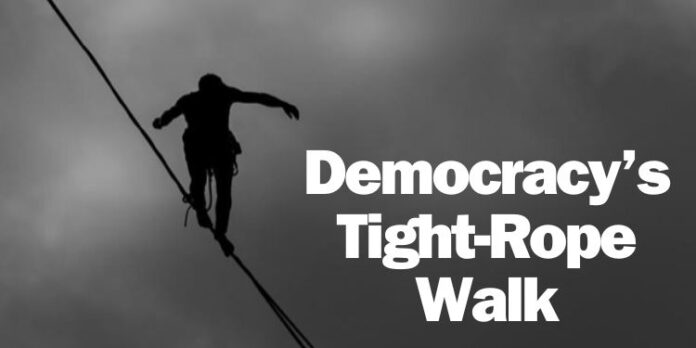Voting Rights Under Siege: The Battle Beyond Shelby v. Holder
Presently, we recognize the constant assaults on the right to vote, coming from a number of Republican controlled state legislatures, in their attempts to “protect election integrity.” Shelby v. Holder was a landmark U. S. Supreme Court ruling, in June 2013, which struck down key provisions of the Voting Rights Act, which left millions of voters of color without the mechanism that had stopped voting discrimination before it could be implemented.
The origin of these attacks comes from the existence of the 1965 Voting Rights Act, signed in August of that year, by former president Lyndon B. Johnson, was described by the former president as “one of the most monumental laws in the history of American freedom.” The VRA was the product of a bold action by Congress, forcefully addressing the problem that nearly a century after the Reconstruction Amendments, millions of Americans were still denied the ability to vote and participate in our democracy, because of their race.
One if the most important and effective parts, of the Voting Rights Act, was Section 5’s “pre-clearance requirement.” Enacted in 1965, and re-authorized by Congress in 1970,1975,1982 and 2006, Section 5 required certain jurisdictions, identified by the coverage formula in Section 4(b), to seek pre-clearance for any changes to voting procedures. The Shelby decision established that those jurisdictions no longer needed to seek pre-clearance for new voting changes. At the time of this decision, nine states were included under the pre-clearance requirement, including Texas.
Since 2013, there have been a flood of new voting restriction laws passed, in multiple states, which includes voter ID requirements, illegal to provide assistance to voters with language difficulties, restrictions on requesting mail-in ballots and making it illegal to provide water or food, to voters waiting in line to vote.
Texas’s voter ID law was challenged, in federal court, and in 2014, Judge Nelva Gonzales Ramos found that the law “had a discriminatory impact on Blacks, Latinos, senior citizens, women and students.”
Now, Texas’s SB 1 is being challenged, again in federal court, and a final decision is being awaited. A partial decision was handed down, in August 2023, wherein the bill’s requirement of a voter ID submitted, must match the id on file, was a violation of the “materiality provision”, of Section 2, of the Voting Rights Act.
Constant challenges to voter registration, attacks on voting procedures are continuing. Leading the constant battles, against disenfranchisement, of citizens’ right to vote, are multiple organizations, including the ACLU, Common Cause, the Legal Defense Fund, MALDEF, LULAC, VoteVets, to name a few.
The greatest Power lies with the People, who have the opportunity to show up, in order to obtain more positive election outcomes and an improvement in the quality of our representation, on all levels!
Your Vote Matters! See You At The Polls!








